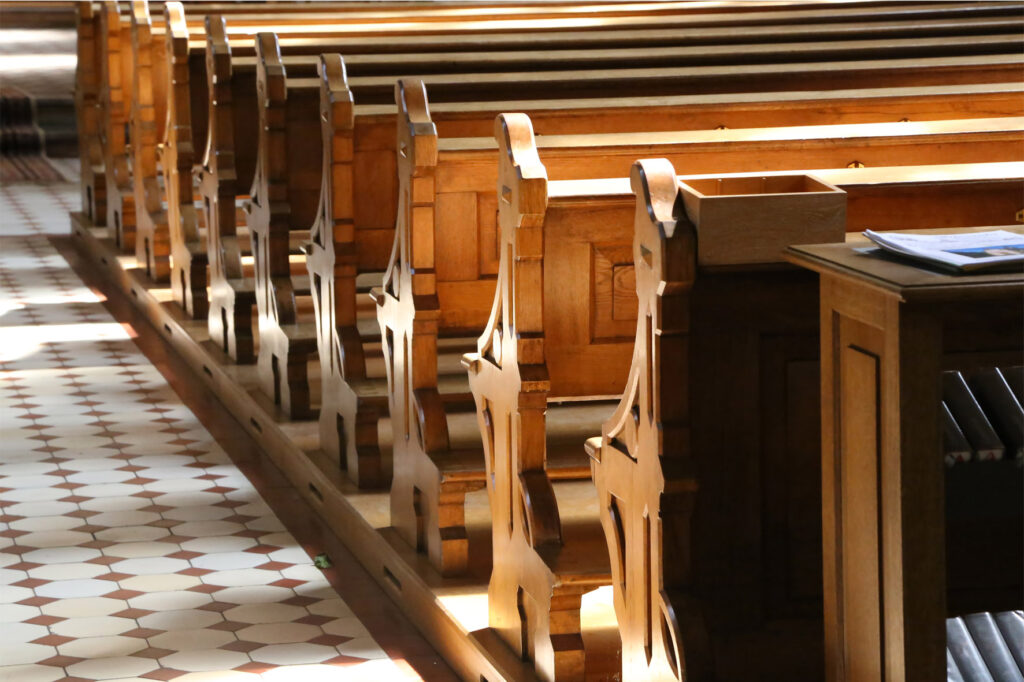Coronavirus crisis affects church membership
Coronavirus crisis affects church membership
Times of crisis often increase the need for spirituality. How has the coronavirus pandemic affected church membership in Europe?
Over the course of 2020, as the coronavirus paralysed the continent, European churches have been reporting interesting trends regarding church membership. Compared to the statistics of 2019, some churches, like the Catholic Church in Austria,[1] and Evangelical Lutheran[2] and Orthodox Churches in Finland, have seen a significant drop in people leaving their respective institutions.[3]
Making a comparison of church membership between all European countries is difficult, as different churches have different methods of keeping records, and not all share their statistics publicly. Also, many have not yet completed their statistics for 2020. However, it seems that across various countries, the year 2020 witnessed a pause in the downward trend in church membership.
Crises affect human behaviour
Times of crisis affect our psychology and behaviour. The threat of disease and constant news flow about the pandemic can result in heightened anxiety and affect mental health. However, a constant feeling of threat can also have more subtle effects on our behaviour, leading, for instance, to more conformist and tribalistic behaviour. Examples include altered opinions on immigration, tolerance of differences, moral judgments, and even political affiliations.[4] This has been already seen in increasing reports of racism.[5]
A crisis can also lead people to turn to spirituality to find comfort and answers to existential questions. It has been acknowledged that natural disasters such as earthquakes and hurricanes have led religious people to turn to their faiths when seeking to find explanations for such negative, unanticipated, and impactful events. It is likely that viral pandemics have a similar effect. In addition, during crises, less religious people also turn to religious coping mechanisms to find meaning in an overwhelming situation.[6]
A recent survey shows that for some, coronavirus has had an effect on religiosity. For example in France, though the majority reported no major change, a sizable number, around 10% of people, said that the pandemic increased their religious faith. 5% of less religious individuals and 33% of religious individuals said the pandemic has strengthened their faith.[7] At the beginning of the pandemic, the need for spirituality was also visible in Google trends, as searches for ‘God’ and ‘prayer’ skyrocketed.[8] On the other hand, in all surveyed countries, 1–5% of people said that the pandemic had in fact weakened their faith.[9]
It is also important to acknowledge that the interest in religiosity has not grown similarly in all countries. For instance, in Sweden, only 3% have experienced their faith growing stronger,[10] and the pandemic did not seem to have an effect on the membership statistics of the Church of Sweden.[11] The largest increase in religiosity was reported in the US (28%) and Spain (16%).[12] One possible explanation for the difference could be that Sweden is one of the most secular countries in the world, whereas religion is more important in the US and Spain.[13] [14] [15]
Why did they not leave?
Quite surprisingly, the pandemic has made Christianity easily accessible to those who would not normally be active in the church.[16] Churches have been active in helping people financially and socially during the crisis, for example helping with grocery shopping, food aid, financial aid, and caring for the sick.[17] [18] [19] [20] The online presence of churches on social media has also increased with live-streamed church services.[21] [22] In countries like France[23] and Finland,[24] televised church services have made records in viewing figures. Church services have become available without having to walk out of the door.
Increased religiosity might not be the only explanation for the changing trend in church membership. It could just be that at the time of an acute crisis, pondering one’s affiliation with a religious organisation is not a priority.[25] However, the reasons behind this phenomenon have not yet been researched.[26]
Disasters could change the course of secularisation
Times of crisis in the past have induced the rise of spirituality. An extreme example are Holocaust survivors, whose increase in religiosity could be seen even after five decades.[27] In addition, in the US states hit by earthquakes in 1811 and 1812, church membership went up by 50%,[28] and more recently, religiosity increased after the Christchurch, New Zealand, earthquake of 2011.[29] Also, people affected by war are more likely to practice religion.[30] Some scholars have even suggested that natural disasters have an important role in maintaining or enhancing religiousness in a society.[31]
Antonio Guterres, secretary-general of the UN, has argued the current pandemic to be the greatest challenge to the world since World War II. In addition to the deaths caused by the coronavirus, the pandemic has led to economic and social devastation.[32] The pandemic has affected ordinary lives in unexpected and psychologically challenging ways. Only after the pandemic is over will it be seen whether prayer and streamed church services will remain popular, or whether the increase of religiosity was merely a passing phenomenon.
Pietari Hannikainen & Meri Hannikainen
Interested in similar topics? Go to our Dashboard and get free updates.
[1] Katholische Kirche: Kirche präsentiert Austrittszahlen
[2] Suomalaisista kuuluu kirkkoon nyt 67,6 prosenttia – kirkosta eroaminen väheni viime vuonna selvästi
[3] Suomen ortodoksisen kirkon hienoinen jäsenkato jatkui vuonna 2020
[4] The fear of coronavirus is changing our psychology
[5] Coronavirus Impact: Racism Hits Harder Than Virus | IES
[6] Ramsay, Jonathan E 2021. COVID-19 and Religious Coping
[7] How COVID-19 Has Strengthened Religious Faith | Pew Research Center
[9] How COVID-19 Has Strengthened Religious Faith | Pew Research Center
[10] How COVID-19 Has Strengthened Religious Faith | Pew Research Center
[11] Preliminär månadsstatistik för aktiva in- och utträden
[12] How COVID-19 Has Strengthened Religious Faith | Pew Research Center
[13] Sweden ‘least religious’ nation in Western world
[14] Religion Considered Important to 72% of Americans – Gallup
[15] Spain is still a very Roman Catholic country, but times are changing
[16] Faith and spirituality in the time of Covid
[17] Kirkko | Kirkko tehnee tänä vuonna ennätyksensä uusissa jäsenissä – Silti kokonaismäärä pienenee, koska ovi käy vilkkaammin toiseen suuntaan
[18] Apostolì and the Municipality of Athens strengthened cooperation to deliver 20,000 food and sanitary kits
[19] Svenska Kyrkan & Sveriges Stadsmissioner provide grocery and medicine shopping services in Sweden
[20] Spanish chaplain on call 24/7 for coronavirus patients: “There are tears, yes, but great hope too” – Novena
[21] COVID-19: Online worship increases outreach and attendance
[22] Half a million tune into Pope’s daily Mass
[23] La messe TV de France 2 a presque triplé son audience – Portail catholique suisse
[24] Television jumalanpalvelus takoo katsojaennätyksiä – Kulttuuri | HS.fi
[25] Kirkko | Kirkko tehnee tänä vuonna ennätyksensä uusissa jäsenissä – Silti kokonaismäärä pienenee, koska ovi käy vilkkaammin toiseen suuntaan
[26] Koronavuosi vähensi kirkosta eroamista – valtakunnallisesti kirkon jättäneitä oli marraskuussa yli 5 400 viimevuotista vähemmän
[27] Personal trauma and world view—are extremely stressful experiences related to political attitudes, religious beliefs, and future orientation?
[28] Natural disasters ‘make people more religious’ 19 Jul 2019
[29] Faith after an Earthquake: A Longitudinal Study of Religion and Perceived Health before and after the 2011 Christchurch New Zealand Earthquake
[30] Study Asks If War Makes A Person More … Or Less … Religious
[31] Ramsay, Jonathan E 2021. COVID-19 and Religious Coping
[32] Global Cooperation Must Adapt to Meet Biggest Threat since Second World War, Secretary-General Says on International Day, as COVID-19 Transcends Borders | Meetings Coverage and Press Releases






